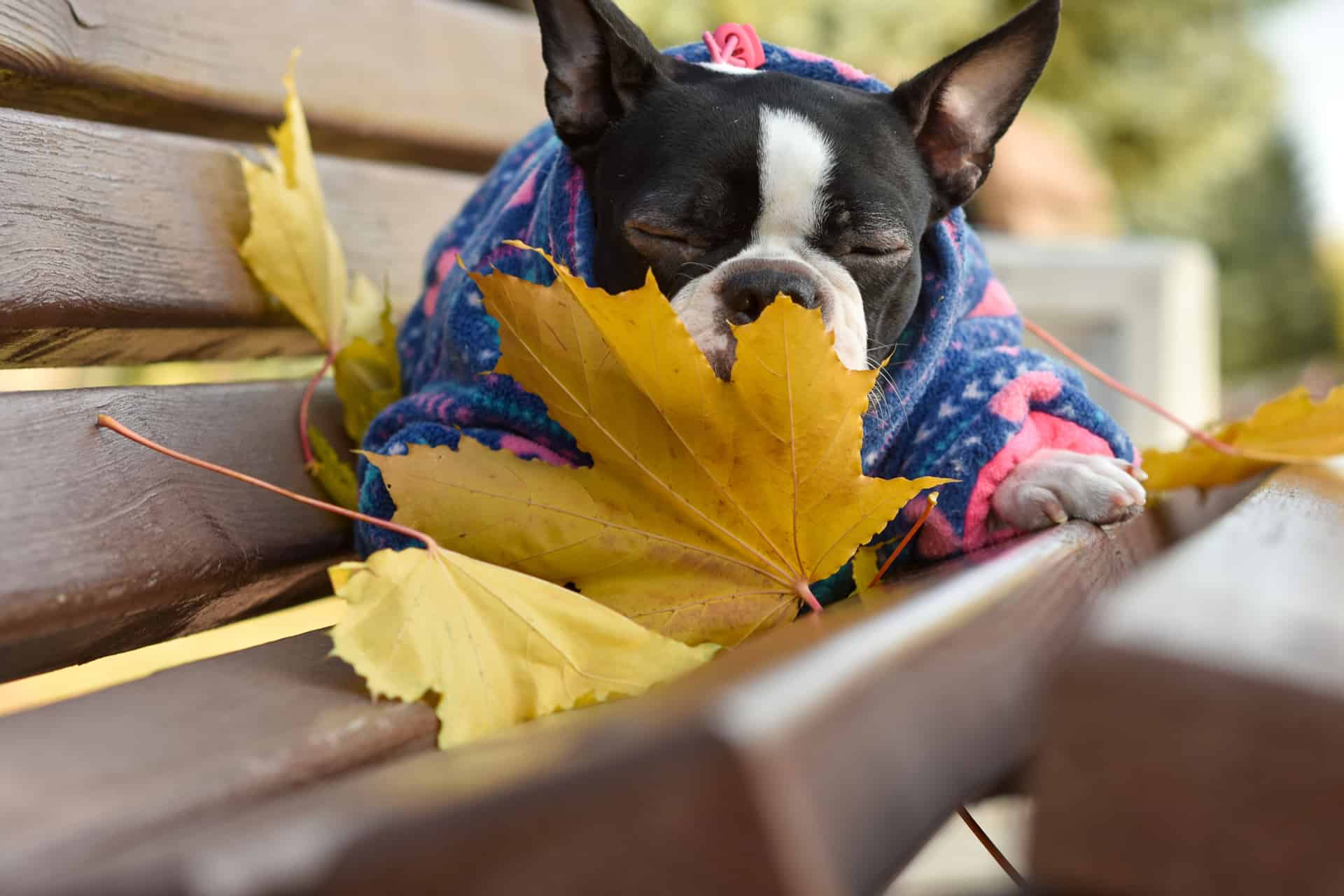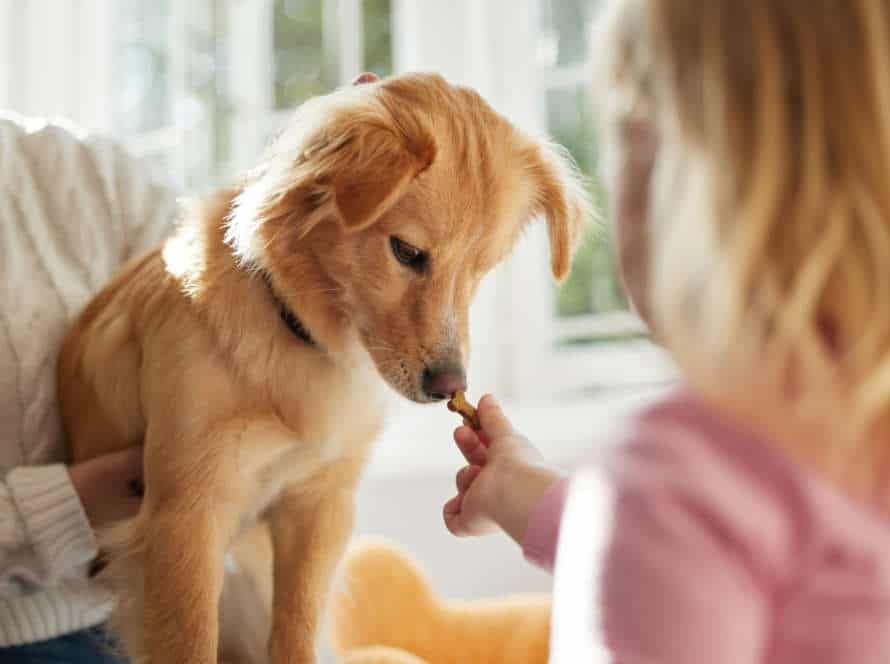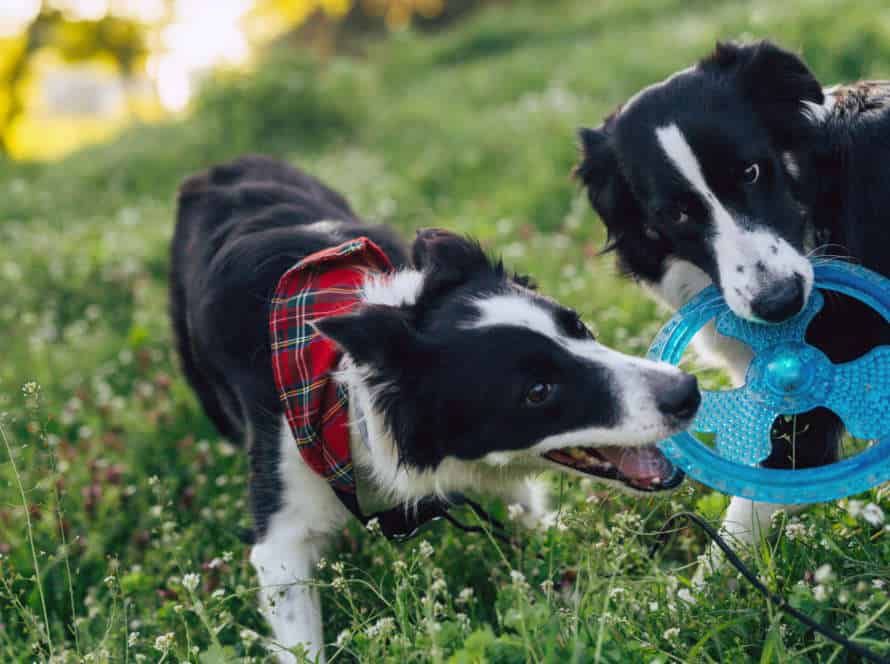Scent Work for Service Dogs: Building Essential Skills
Scent work is essential for service dogs. It can help them detect and alert their handlers to allergens or dangerous substances.
Here are some must-have abilities for scent work:
- Increase focus and stamina by lengthening training sessions.
- Teach recognition of different smells. Introduce new ones slowly, making sure the dog reacts correctly.
- Final response when scent is identified must be consistent and easy to identify. May be anything from lying down to barking.
- Incorporate distractions into scent work sessions. This replicates situations where the dog has to focus on one smell among many.
Scent work is a great way to bond with your service dog and can have big benefits for people with disabilities or allergies. It’s an enjoyable and mentally stimulating activity.
The Importance of Scent Work for Service Dogs
Scent work is one of the key skills for service dogs. They must detect and track smells to do their assigned tasks, like detect an emergency or search for a missing person. Furthermore, scent work helps them learn other useful abilities like search and rescue or drug detection. Let’s delve deeper into the significance of scent work for service dogs.
Advantages of Scent Work for Service Dogs
Scent work for service dogs is an amazing way to create skills that let them do complex stuff to help people with disabilities.
Benefits of scent work for service dogs:
- Boosting Confidence: Scent work helps dogs trust their inborn talents.
- Focus and Obedience: Service dogs need to be alert, concentrated and obedient. Scent work educates them how to stay focused in distracting situations.
- Mental Stimulation: Mental stimulation is very important for any dog’s wellbeing. Scent work offers them a fun and interactive way to exercise their brains.
- Refining Service Skills: Through scent training, service dogs can detect and recognize smells related to their tasks. This makes them more capable, confident, and dependable in carrying out tasks that help their handler every day.
Benefits of Scent Work for Handlers and Dogs
Scent work has loads of perks for both pups and their owners, especially those who rely on their pup’s sense of smell to help them out.
For Dogs:
- Mental Workout: It exercises their nose, keeping them mentally alert and attentive.
- Physical Exercise: It involves sniffing, searching, and running, which keeps them fit without straining their joints.
- Confidence Building: They gain independence and decision-making skills, and become more confident with less anxiety.
- Curbs Unwanted Behaviors: Their energy is directed towards something positive, preventing destructive or undesirable activities.
For Handlers:
- Improved Communication: They can better understand each other, and build a stronger bond.
- Stress Relief: A great way to take their mind off stressful situations.
- Empowerment: They can be proud of their pup’s ability to do specific tasks that keep them independent.
- Better Quality of Life: They stay independent and self-reliant, while having lots of fun.
Pro Tip: To get the most out of scent work, handlers must be patient and consistent. Ask a professional trainer or aroma therapist for tips on how to train their pup properly.
Real-life Applications of Scent Work for Service Dogs
Scent work is an important ability for service dogs. They use it to help their owners in everyday life! Here are some of the ways scent work can be used:
- Medical detection: Service dogs can be trained to recognize when their handler’s blood sugar is too high or too low.
- Allergen detection: Service dogs can find allergens like nuts, dairy, and gluten, helping their handler prevent reactions.
- Mobility assistance: Scent work can be used to help service dogs find door handles and light switches, helping their handlers get around.
- Search & rescue: Service dogs can use their sense of smell to find missing people and detect deceased individuals.
Scent work is necessary for service dogs, allowing them to give their owners the help they need.
Pro Tip: When training a service dog in scent work, use rewards like treats and toys to encourage good behavior.
Training for Scent Work
Training a service pup for Scent Work is a great way to give them important skills. It builds confidence and helps them to concentrate on their handlers. It goes beyond the basics of obedience. Let us take a closer look at Scent Work training for service dogs. It helps them to comprehend their surroundings, too!
Basic Behaviors Essential for Scent Work
Scent work is a must-do task for service dogs. Mastery of certain behaviors is a must. Here are the basics:
- Focus – your pup must pay close attention and not be distracted.
- Determination – they must persist in tracking the scent, even when it’s hard to find.
- Patience – they must persevere at complex scent puzzles until they get it right.
- Discipline – they must obey commands and stay focused despite distractions.
- Confidence – a confident pup is better at navigating new environments and following scents.
Training a service dog for scent work is awesome! These behaviors are the foundation for success.
How to Start Scent Work Training
Start scent work training! Build essential skills for service dogs to detect scents and do tasks. Here are steps to train your pup:
- Introduce a scent. Pick a familiar one and link it to something positive. Hold it near them and give a treat or reward when they smell it.
- Set up a search pattern. Start with containers and hide the scent. Encourage pup to find it and make it harder as they go.
- Reward pup. When they locate the scent, give treats, praise, and playtime. Tie scent work to fun and positive experiences.
- Add distractions. Increase difficulty with other scents or noise. Practice in different places so they learn to find the scent.
- Practice regularly. Consistency is key. Do it often to build skills.
Pro Tip: Be patient and consistent. Reward small steps. Never punish for not finding the scent. Scent work takes time and practice, but it’s a rewarding experience for you and your pup.
Positive Reinforcement Techniques for Scent Work
Positive reinforcement techniques are a must to have a successful scent work training. Try these effective techniques:
- Treats & Praise: Reward your dog with treats and praise when they find the target scent. This will reinforce good behavior and build confidence.
- Toy Rewards: Use a special toy to motivate your pooch.
- Clicker Training: This form of positive reinforcement uses a clicker to signal your dog when they do something correctly. This builds a strong connection between the target scent and the reward.
By using these techniques consistently, you can help your service dog acquire the essential skills for successful scent work.
Building Essential Skills for Scent Work
Scent work is a must for service dogs. They use it to detect and find objects, people, and other animals. It’s a useful tool to help locate and collect things. Let’s discuss the key skills service dogs need to excel at scent work.
Teaching the Dog to find a Specific Scent
Train your pup to sniff out a special smell with these helpful tips! Firstly, use something yummy or fun to make a positive link between the scent and reward. Get scent-training aids like essential oils or kits to prep them. Let them get used to the smell in a controlled setting. Every time they identify the scent correctly, reward them! Gradually increase the difficulty of the exercises. Consistency and positive reinforcement are key for success in scent work. So, set achievable goals, be aware of their boundaries and keep the training enjoyable and short!
Reinforcing the Dog’s Ability to Distinguish Different Scents
Reinforcing a pup’s capacity to recognize different fragrances is vital for scent work, particularly for service dogs.
Here are some tips to help your pup’s scent work abilities:
- Use positive techniques like praise, treats and toys to reward your pup when they identify scents correctly.
- Always start at the lowest level of difficulty and increase it gradually as your dog gets more skilled.
- Keep the scent source hidden and consistent to keep the pup’s focus.
- Don’t overtrain them, or they may lose enthusiasm for the task.
By reinforcing their scent work abilities, you can build essential skills that will help them become successful service dogs.
Teaching the Dog to Follow a Scent Trail
Training your pup to follow a scent trail is essential for scent work. It’s especially beneficial for service dogs. Here are some tips to help you:
- Introduce your dog to the scent. Let them get familiar and reward them for identifying it.
- Create a scent trail by dragging a scented item through grass or any non-porous surface.
- Start with a short trail and increase the distance over time.
- Let your dog explore the trail on their own and reward them when they find the source.
- Practice regularly and make the task more difficult by adding more scent sources or changing the terrain.
With plenty of practice, patience, and positive reinforcement, your dog will follow a scent trail with ease. This will make their scent work and service dog duties more efficient.
Advanced Skills for Scent Work
Your service dog is past the basics? Great! Now you can teach them complex skills. These skills help your pup search for specific targets, detect multiple targets, or obey commands from far away. In this article, we look at the advanced concepts of scent work for service dogs and how to help them learn.
Handling Distractions during Scent Work
In scent work, distractions can ruin a dog’s concentration. These tips can help when handling distractions during scent work training:
- Gradually Increase: Train in a quiet place and raise the level of distractions as your dog gets better.
- Reward Good Behavior: Give treats, toys, or praise when your dog succeeds despite a distraction.
- Neutral Stimuli: Begin with everyday objects and move to high-intensity distractions such as loud noises.
- Observe Your Dog: Watch their behavior and body language during training. This lets you recognize anxiety or discomfort and change your training.
Distractions can improve scent work if you use these tips. Pro tip: Be consistent and patient to build confidence in your dog and their ability to focus.
Increasing the Difficulty of Scent Work Searches
As dogs get better at scent work, it’s important to make the searches harder. Here are some advanced skills for scent work that can help your dog’s nose work:
- Layered Searches: Hide multiple scents in one area and train your dog to pick them out.
- Blind Searches: Don’t know where the scent is? Rely on your dog’s skills to find it.
- Duration Searches: Hide a scent for a long time. Can be hours or days.
Make the searches more challenging to boost your dog’s skills.
Pro Tip: Reward your dog with praise, treats, and playtime when they do well. Keep them motivated and engaged!
Search and Rescue Applications for Scent Work
Scent work is a must for search and rescues! It helps dogs to track and find those lost or detect dangerous materials in various places. Service dogs need advanced training in scent-work to build their skills and do their job.
Techniques like air-scenting, tracking, and trailing are used to help dogs follow a scent trail and detect airborne odours. This helps them locate people or hazardous materials in different environments.
Service dogs receive rigorous scent work training. This includes building their olfactory abilities, learning to tell scents apart, and mastering how to work on all terrains and in every condition. These abilities help them do their job and give vital aid to their handlers.
In conclusion, advanced scent work skills are super important for search and rescue applications and service dogs’ success. Training and practice play a key role in building these skills and making sure the dogs are ready for their duties.
Certification and Evaluation for Scent Work
Certification and evaluation for scent work is key to make sure service dogs do their job right. Evaluation is used to find strengths and weaknesses in the dog. It allows handlers and trainers to set realistic goals and limits for their service dogs.
Let’s explore how certification and evaluation works for scent work with service dogs.
Certification Options for Service Dog Scent Work
Service Dog Scent Work provides certification options. Here are the certifications and evaluations for scent work that can improve service dog skills:
- AKC Scent Work: The AKC supplies tests for beginner, advanced, and expert levels. You can also compete in trials for every level.
- UKC Nosework: UKC Nosework has four distinct trial levels. Narcotics and Explosives Detection Dogs (NDDA) and USCSS also offer similar certifications for scent work.
In these tests, dogs need to locate a target scent, like a secret cotton swab, within a specific number of containers, rooms, or areas.
Scent Work training is great for service dogs. It bolsters their senses, increases focus, and helps them perform better at their tasks.
Importance of Certification for Scent Work Dogs
Certification is a must for scent work dogs. It ensures they have the right skills and training to do their job right, and safe. Here’s why it’s so important:
- Proof of Ability: Certification shows a scent work dog’s skill at detecting smells, following scent trails, and alerting their handler.
- Training Check: Evaluations test a dog’s abilities in different scenarios and surroundings, making sure they’ve had proper training.
- Liability Safety: Certified scent work dogs are less likely to make mistakes that could lead to legal problems for their handler or owner.
- Public Trust: Certification gives the public confidence that scent work dogs are well-trained and able to do their job properly.
To get ready for certification, scent work dogs should have proper training, be exposed to various odor sources, and practice in many environments.
Evaluating Service Dogs’ Abilities in Scent Work.
Evaluating a service dog’s scent work abilities is crucial. Certification and evaluation build essential skills. Here’s how it works:
Certification: Dogs have a tough training program to learn scent work, obedience and more. Then, they get tested. The exam tests their abilities to detect and alert to scents accurately. Like narcotics, diabetic and medical alerts.
Evaluation: An individual assessment to see if the dog can do specific tasks, like sniff out an odor in a room or find a scent on a person. The evaluation proves the dog is ready to help their handler in any situation.
Scent work is very important for service dogs. Certification and evaluation make sure they are trained right and ready to help.
Frequently Asked Questions
1. What is scent work for service dogs?
Scent work for service dogs involves training them to use their sense of smell to detect and locate specific scents that can help them perform tasks for their handlers.
2. What are some essential skills that service dogs need to learn in scent work?
Service dogs need to learn to distinguish a target scent from other scents in the environment, follow a scent trail, alert their handler to the presence of the scent, and indicate the location of the scent source.
3. How is scent work beneficial for service dogs and their handlers?
Scent work helps service dogs to develop and use their sense of smell, which is one of their most powerful senses. It also enhances the bond between the dog and their handler, as they work together to accomplish tasks. Moreover, scent work can help enhance the dog’s confidence and reduce anxiety by giving them a specific job or task to focus on.
4. How do I start training my service dog in scent work?
The first step in training a service dog for scent work is to find a qualified trainer who specializes in this type of training. They can assess your dog’s strengths and weaknesses and develop a customized training plan for them. As the handler, it is important to be patient, consistent and positive to achieve the best results.
5. Can any breed of dog be trained for scent work?
Yes, any breed of dog can be trained for scent work. However, some breeds, such as bloodhounds and beagles, have a stronger sense of smell and may be better suited for this type of work. With proper training, any dog can learn to use their sense of smell to perform tasks for their handlers.
6. How long does it take to train a service dog in scent work?
The length of time it takes to train a service dog in scent work varies depending on the breed, the dog’s personality and the level of training required. However, it typically takes several months to a year of consistent training for a dog to become proficient in scent work.







